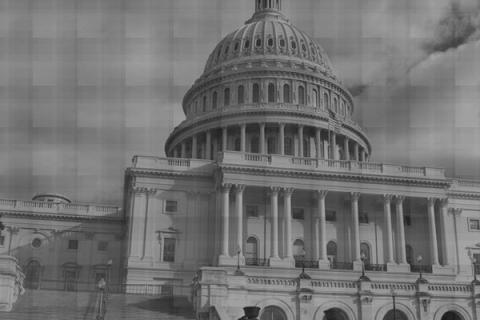Despite infighting and charges of racism from the NAACP, the Tea Party movement now has the political backing to stay relevant in the November midterms, gaining an official caucus in Congress.
The Washington Post reports that Rep. Michele Bachmann (R-Minn) unveiled her intentions to create a Tea Party Caucus in the House of Representatives. Within days, the Committee on House Administration officially approved the House Tea Party Caucus. Like the Hispanic or the Black Caucuses, the Tea Party Caucus will not be confined to those associated with one party. Instead, it will be guided by “fiscal responsibility,” “limited government,” and a “strict adherence to the Constitution,” Bachmann said in a letter to Nancy Pelosi (D-Calif).
In the same letter, Bachmann asked her to support the new caucus. “The Tea Party movement has become synonymous with these principles, and a caucus taking these values to heart would work to advance them,” she wrote. While it may seem like another political game, asking Pelosi to support the Tea Party Caucus is a very interesting move.
It comes after Pelosi said earlier this year that Democrats and the Tea Party share some common ground. In light of her earlier statement, Pelosi’s response and treatment of the new caucus will be an interesting one.
The Tea Party’s surging relevance extends beyond a party caucus in the House. Based on its ideology of limited governmental intrusion, the party as it stands now is seeking a class of politicians this fall who will reflect distinct principles.
These principles look to be different from the tax and spend mentality coming from the current career politicians in Washington.
Coincidentally, these principles of the Tea Party resonate with the platform of conservative icon Ronald Reagan, stated just three years before his 1980 presidential campaign:
“Extreme taxation, excessive controls, oppressive government competition with business, galloping inflation, frustrated minorities, and forgotten Americans are not the products of free enterprise. They are the residue of centralized bureaucracy, of government by a self-anointed elite,” Reagan said in a speech before attendees at the 1977 Conservative Political Action Conference.
In his subsequent election as president, Reagan’s message resonated with voters across the political spectrum, including those who became known as the Reagan Democrats. Given the similarities to Reaganite principles* and the similar political climate, is it possible that the Tea Party movement will have a broad reach with the electorate this fall?
With the midterm election still a ways off, the answer is still be up in the air. One thing, however, is for sure. With a dismal 12 percent approval rating of Congress, there is certainly a “clean house” sentiment floating in the air headed into November.
That goes for both Democrats and Republicans. No party is safe. Career politicians beware.
*Editor's note: It should also be noted that under President Reagan (with a largely Republican Senate & a Democratic House), federal spending significantly increased, the budget was never balanced, the national debt doubled, and the size of government grew. Read here.

